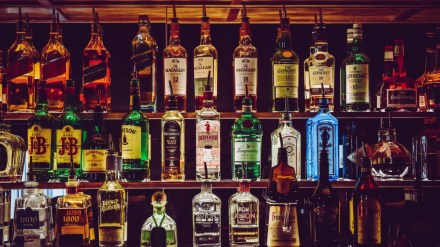You might see a slight dip in scotch prices, but don’t expect major savings on a bottle. After the new India-UK trade deal, import duties on UK scotch have been cut in half. Still, state taxes remain high, so experts say prices in stores may only drop by 8-10 per cent, according to a report by The Indian Express.
“Customs duty typically accounts for around 20 per cent of the MRP across the country, while the bulk of taxes are imposed by the states. A reduction in duty by half could bring down consumer prices only by 8-10 per cent,” the publication reported, quoting an industry insider who requested anonymity.
New scotch brands could enter India with lower prices
Under the deal, India will reduce import duty on scotch and blended whisky to 75 per cent right away and gradually to 40 per cent over ten years, once both countries approve the agreement. This cut will apply to both bottled-in-origin (BIO) and bulk imports.
“Our fear is that a lot of new scotch brands from the UK can come in. These brands may not be famous here today, but they can come in at really aggressive prices that are comparable to Indian premium whisky. Already, some standalone importers are bringing in BIO whisky under 150 per cent duty with aggressive pricing,” Anant S Iyer, head of the Confederation of Indian Alcoholic Beverage Companies (CIABC), was quoted by the publication as saying.
British scotch brands like Chivas Regal, Ballantine’s, Glenlivet, Glenfiddich and Johnnie Walker may become slightly cheaper. Whisky was the UK’s fifth-biggest export to India in 2024-25, worth around $260 million, up 16 per cent from the previous year.
A bottle of Black Label in Delhi priced at around Rs 3,500 might only get Rs 200-300 cheaper even if the entire duty cut is passed on, Vinod Giri, another industry expert, told the outlet.
Indian blenders may gain the most
While consumers might not see big savings, British exporters and Indian companies that mix imported scotch with local whisky are likely to benefit. Scotch is typically blended in varying amounts, from 2 to 30 per cent, depending on the product. Popular Indian brands that use this method include Blenders Pride and McDowell’s No. 1, the report mentioned.
“Any duty reduction on Scotch whisky means the cost of production for Indian whisky makers who import it for blending goes down to that extent. While it’s not likely to reflect in consumer prices, the fact is that if their costs go down, their bottom lines improve,” Giri told IE.
“Indian blenders will have savings per case. It depends on how much quantity of vatted malt scotch is used in the blends, and hence there will certainly be savings for them,” Iyer added.
Duty cut may reduce local bottling
Giri also said that the tariff reduction could hurt local brands. Over time, bottled-in-India (BII) whisky might be replaced by BIO scotch.
“With standard Scotch whisky, if the entire duty cut is passed on, prices may drop by Rs 100-150 a bottle, bringing them close to BII whisky, which sells for around Rs 1,500. BII is also Scotch, just imported in bulk to avoid duties on packaging and other costs,” he explained.
“But with the new duty set to drop to 75 per cent and then gradually to 40 per cent, it makes little commercial sense to bottle locally, invest in factories, and deal with operational hassles. Production costs are already lower in Scotland due to scale efficiencies, so they might as well ship scotch bottled from there and improve margins,” Giri said.
Brands like 100 Pipers, Teacher’s, Black Dog, and Black & White currently bottle imported scotch in India.
